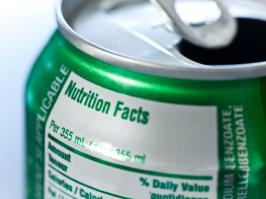- Managing your Practice
-
- Your Benefits
-

Introducing the ultimate Club MD experience
From work to play, and everything in between, we provide you with access to hundreds of deals from recognizable, best-in-class brands, elevating every facet of your life – from practice supports to entertainment, restaurants, electronics, travel, health and wellness, and more. Your Club MD membership ensures that these deals are exclusive to you, eliminating the need to search or negotiate.
Welcome to the ultimate Club MD experience. Your membership, your choices, your journey.
-
- Advocacy & Policy
-
- Collaboration
- News & Events
-

Stay Informed
Stay up to date with important information that impacts the profession and your practice. Doctors of BC provides a range of newsletters that target areas of interest to you.
Subscribe to the President's Letter
Subscribe to Newsletters
-
- About Us
-

The health risks of consuming sugary drinks
February 21, 2017
Together for Health
New research in Canada suggests that over the next 25 years more than 63,000 people will die from consuming sugary beverages such as juice and energy drinks – beverages consumed mostly by children and youth. It will also be responsible for nearly a million cases of Type 2 diabetes, 300,000 cases of ischemic heart disease such as heart attacks, and 100,000 cases of cancer.
 The research was commissioned by health charities such as the Canadian Cancer Society, Canadian Diabetes Association, and Heart & Stroke Foundation, and shows that the average Canadian youth consumes approximately 600 millilitres of sugary drinks per day – the equivalent of roughly 13 sugar cubes which far exceeds what the dietary recommendations are in terms of limits for children up to age 18. A single can of pop can contain 10 teaspoons of sugar.
The research was commissioned by health charities such as the Canadian Cancer Society, Canadian Diabetes Association, and Heart & Stroke Foundation, and shows that the average Canadian youth consumes approximately 600 millilitres of sugary drinks per day – the equivalent of roughly 13 sugar cubes which far exceeds what the dietary recommendations are in terms of limits for children up to age 18. A single can of pop can contain 10 teaspoons of sugar.
The report calls for additional health measures to be taken including:
- Front of package warnings for sugar
- Restrictions on marketing to children
- A sugar tax
This research is just the latest in the ongoing battle to reduce sugar consumption among children, youth, and adults. In Spring 2016, a report was released urging the overhaul of Canada’s Food Guide to help combat obesity stating a significant reduction in sugar consumption would go a long way toward promoting normal body weight and improving health. The report also suggested the government consider a ban on advertising food and drinks to children, and a possible tax on sugar-sweetened beverages.
In December 2016 Health Canada introduced new labeling measures to help Canadians understand the sugar content of their food; however, decided against listing the amount of added sugars on food labels. And just last month a group of researchers revealed that close to two-thirds of foods generally considered to be healthy alternatives, such as some breakfast cereals, granola bars and fruit juices, actually contain added sugars at levels high enough to be linked with weight gain and high blood pressure.
Media stories on this topic:
CBC News – Sugary drink consumption by youth far exceeds recommended limit, researchers say
Global News – The sweet lowdown: Is sugar the world’s most ubiquitous drug?
CBC News - Added sugar often found in Canadian products marketed as 'healthy,' researchers find




